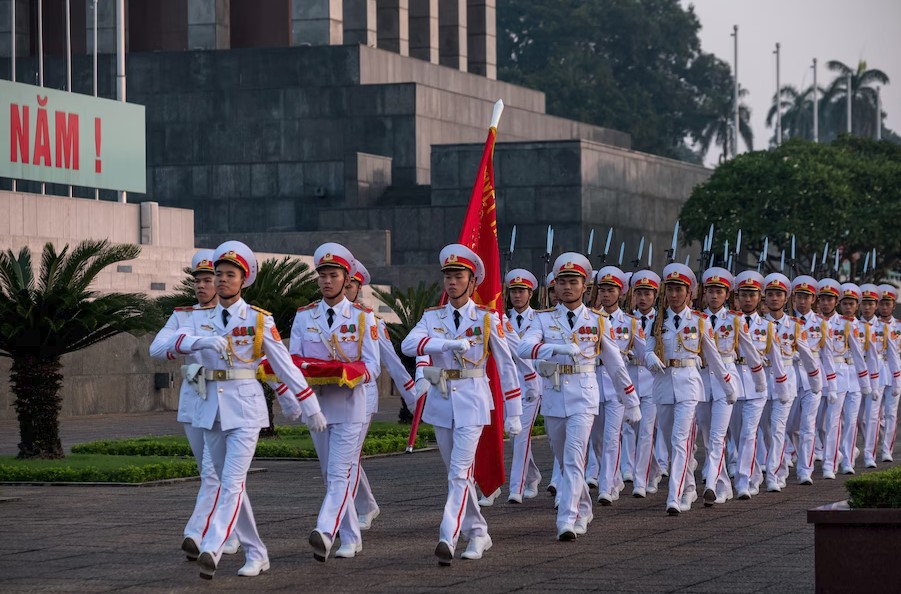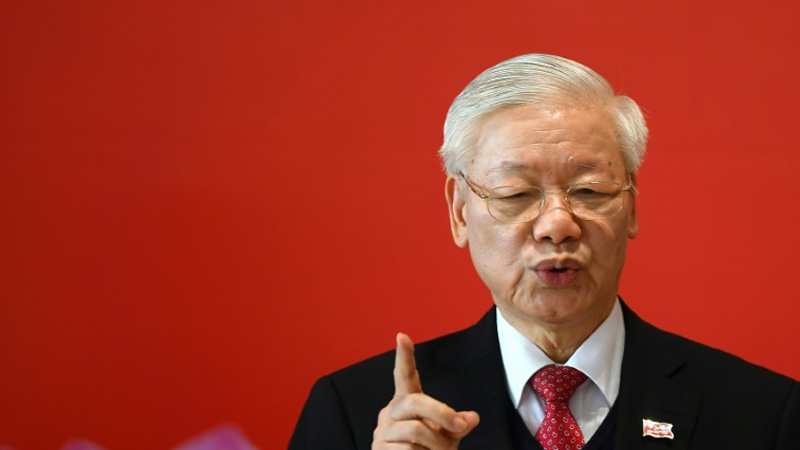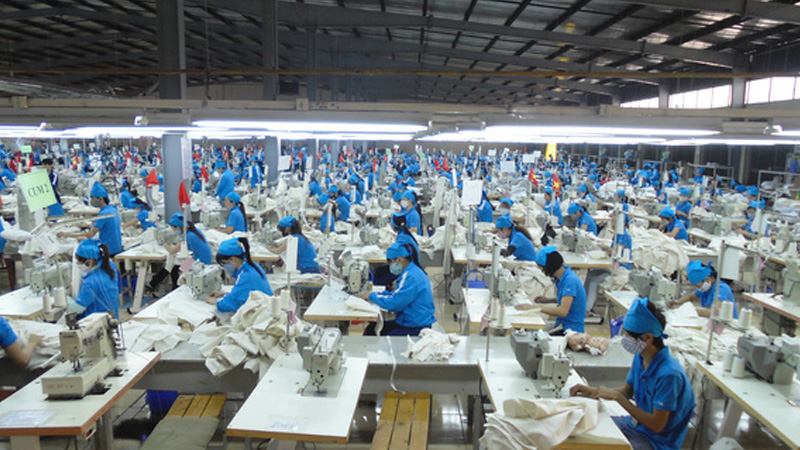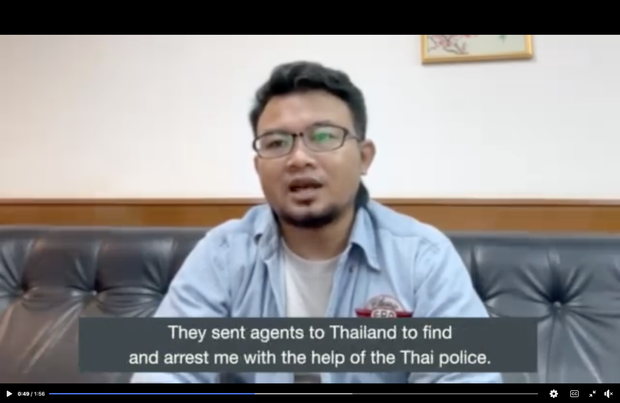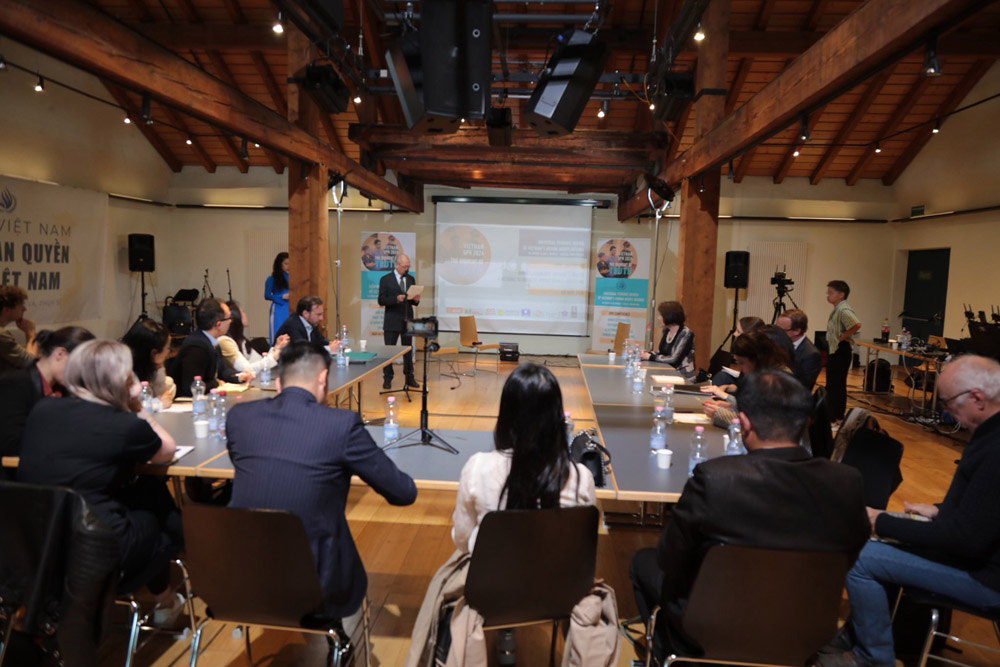The two countries are boosting economic and tech ties as Beijing increases its assertiveness in the region
By Ellen Nakashima and Rebecca Tan
September 1, 2023 at 11:34 a.m. EDT
The United States and Vietnam are poised to significantly enhance their economic and technological ties, bringing the former foes closer at a time of increased Chinese assertiveness in the region.
The deal, expected to be announced when President Biden makes a state visit to Vietnam next weekend, is the latest step by the Biden administration to deepen relations in Asia. For Hanoi, the closer relationship with Washington serves as a counterweight to Beijing’s influence.
The establishment of a “comprehensive strategic partnership” will give the United States a diplomatic status that Vietnam has so far reserved for only a handful of other countries: China, Russia, India and South Korea. The move was confirmed by a senior Biden administration official and two people in Hanoi familiar with the matter.
It shows that Hanoi is willing to risk angering Beijing but sees the move toward Washington as necessary given how aggressively China is flexing its military muscle in the region, analysts said.
“If you have the United States on the same pedestal as China, that is saying a lot to Beijing, but also to the rest of the region and the world,” said Derek Grossman, a senior defense analyst at Rand Corp. and former U.S. intelligence officer. “That’s saying the U.S.-Vietnam relationship has come a long way since 1995,” when the two countries normalized relations.
The agreement, proposed by the Biden administration in recent months, flows from a U.S. strategy to build economic and security partnerships in the Indo-Pacific that can serve as a bulwark against Chinese economic and military coercion.
For Vietnam, it “serves both symbolic and substantive purposes,” said Le Hong Hiep, a senior fellow at the Singapore-based ISEAS – Yusof Ishak Institute.
The agreement is expected to lead to greater economic activity between the two countries, as the United States seeks to diversify its manufacturing supply chains away from China and as Vietnam aspires to develop advanced technologies. American semiconductor firms have expressed “a willingness to support them in that ambition,” said a senior Biden administration official, speaking on the condition of anonymity because the agreement has not yet been announced.
The United States is now the top destination for exports from Vietnam, which has made a dramatic economic transformation over the past two decades. VinFast, the country’s leading electric vehicle manufacturer, is now selling its sleek SUVs in California and recently held an initial public offering of its stock on Nasdaq. American companies have likewise shown a willingness to do business: Apple and Google suppliers have invested heavily in new factories in Vietnam, and a major announcement is expected from Boeing, which said earlier this year that it intends to expand its footprint in the country.
The upgrade in relations also stands to boost defense and security cooperation between the United States and Vietnam. Hanoi and Washington are expected to increase U.S. aircraft carrier visits, joint military exercises and arms sales, officials said. Among the top buyers of Russian arms, Vietnam has said publicly it wants to diversify its military arsenal. Last year, Vietnam hosted its first international defense fair, and U.S. defense contractors Raytheon and Lockheed Martin sponsored the two largest booths.
Vietnam does not have treaty allies. Instead, the communist state has a rigid three-tier hierarchy of bilateral ties. Washington was granted “comprehensive” partnership status a decade ago, and normally it takes years for Hanoi to move a country to the next level, dubbed “strategic.” But Hanoi is slated to fast-track an upgrade to the highest tier, with Washington earning the “comprehensive strategic” designation, officials say.
Despite the communist affinity with its big brother to the north, Vietnam has been motivated to find new partners due to Beijing’s aggressive activity over the past decade. But, said the senior administration official, it was also enticed by Washington’s engagement this year with India — another major developing country in the region — that has resulted in agreements to partner in technology, defense and education.
“We were able to make a credible case” to Hanoi to take the relationship “to the highest level,” the official said.
But the deal is not a steppingstone to a formal defense alliance, Biden administration officials said.
“This is not Vietnam coming to the American side of the playground,” said Gregory Poling, director of the Southeast Asia program at the Center for Strategic and International Studies. “This is Vietnam ensuring that it can balance the two powers [China and the United States] so it can maintain its own autonomy.”
Vietnam, which shares a border with China, has long disputed Beijing’s territorial claims over the Spratly and Paracel islands in the South China Sea. China’s coast guard continually harasses Vietnamese oil and gas drilling operations and regularly boards Vietnamese fishing ships.
Vietnam has expressed interest in increasing cooperation with the United States on maritime surveillance and technology, said Le, the analyst in Singapore. “With the comprehensive strategic partnership in place, this is all on the table,” he added.
Hanoi remains cautious of offending Beijing, which is steadily modernizing its military, analysts say.
Last week, shortly before the White House announced Biden’s trip to Vietnam, the general secretary of the Communist Party of Vietnam, Nguyen Phu Trong, traveled with the Chinese ambassador to Vietnam, Xiong Bo, in what some saw as an attempt to mitigate potential backlash once the upgrade in relations is announced.
While inspecting a border trading pass in Lang Son province, Trong, widely seen as the most powerful political figure in Vietnam, praised the “comrades and brothers” friendship with China. Biden is scheduled to meet with Trong in Hanoi.
But the deepening relationship has drawn criticism from human rights advocates, who say that Hanoi continues to crack down on dissent and religious freedom and accuse Washington of placing strategic interests ahead of core values.
Ben Swanton, co-director of the 88 Project, a U.S.-based nonprofit that tracks the arrests of activists in Vietnam, said he’s skeptical that closer relations with the United States will lead to greater freedoms for the Vietnamese people. In the past decade, Hanoi’s warming relationship with Washington has done little to deter a rising authoritarian trend led by Communist Party hard-liners, he said.
According to the 88 Project, Vietnam has imprisoned nearly 200 people on political grounds, including several of the country’s most prominent climate activists. In 2016, as part of a highly publicized visit to Vietnam, President Barack Obama met with a group of civil society leaders; many of them are now in jail or in exile.
“The commitment to democracy and human rights,” Swanton said of the Biden administration, “has been cast aside in favor of extending U.S. dominance in the region.”
Administration officials respond with an argument deployed when Indian Prime Minister Narendra Modi, who in 2005 was denied a visa to the United States for his role in deadly communal riots in western India, was welcomed to the White House for a state dinner in June.
They raise human rights concerns with these leaders, but in private, “quietly, respectfully,” said the administration official. “We question whether public lecturing is the best plan of action with countries that are seeking to work closely with us.”
Washington should insist on seeing progress in human rights and civil liberties, even if done quietly, said Duy Hoang, executive director of Viet Tan, a pro-democracy political group in Vietnam. “To have a free and open Indo-Pacific,” said Duy, “you really need free and open societies.”
Tan reported from Singapore.

